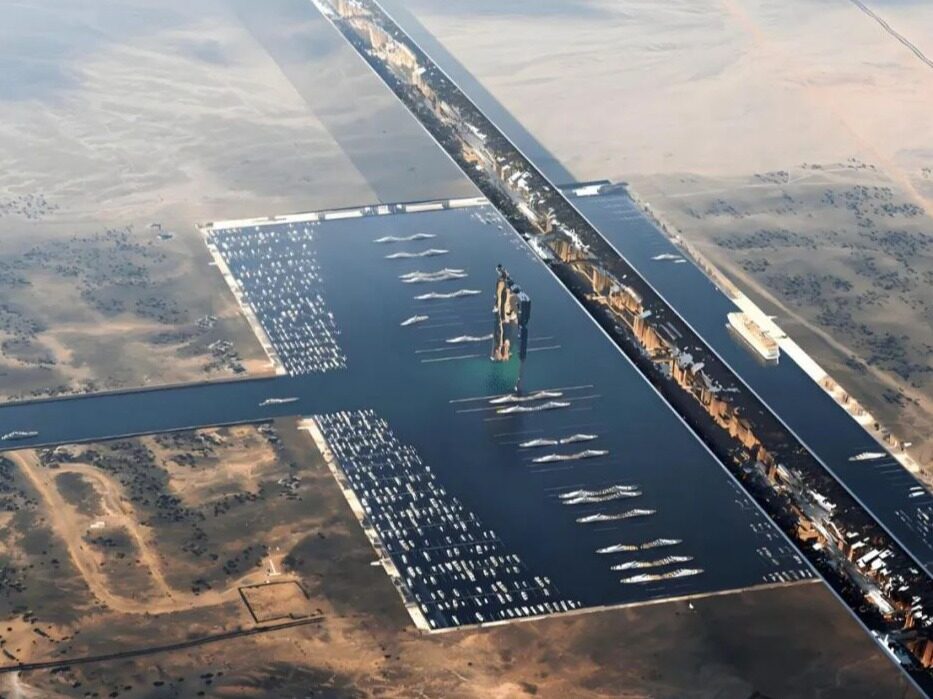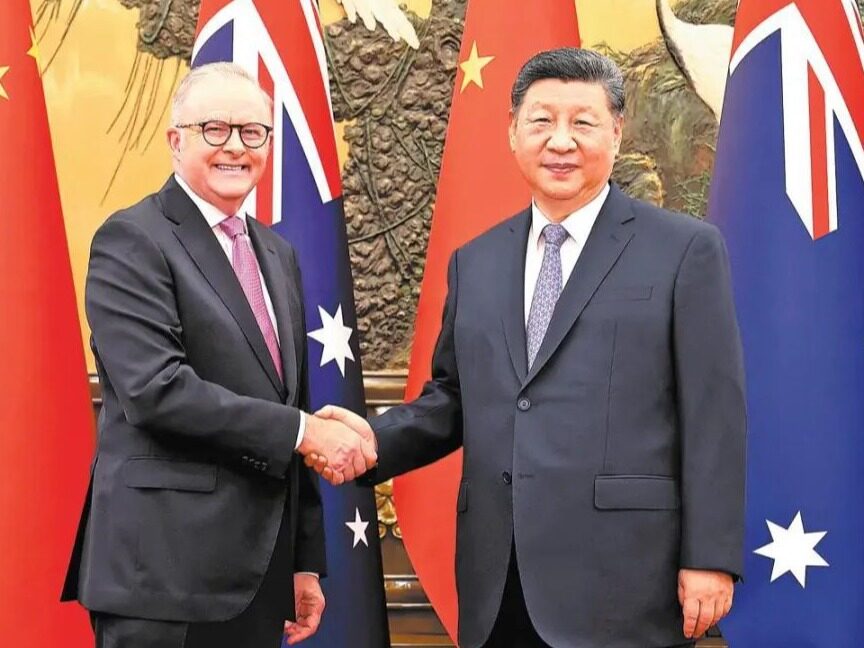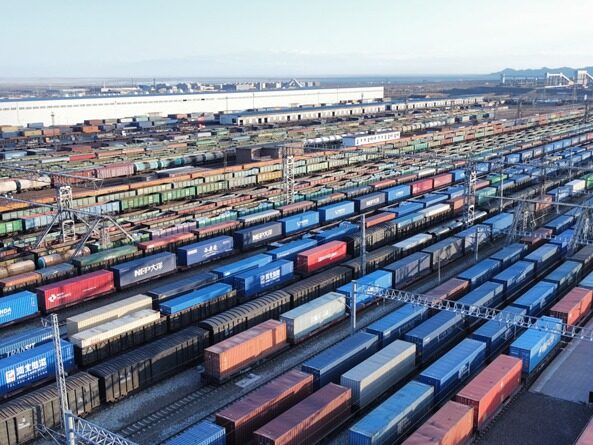- On May 24, 2022, Biden ends his trip to Asia, and the Quartet Security Dialogue will be held on the same day
- The statement declares that it will continue to address challenges to the maritime order, including the East and South China Sea

On the evening of May 24, 2022, Biden left Tokyo, Japan, ending his first trip to Asia since he took office as the president of the United States. Earlier in the day, the United States, Japan, Australia, and India held a meeting of the leaders of the Quadrilateral Security Dialogue (QUAD) and issued a joint statement declaring that they would continue to address the "challenges" faced by the rules-based maritime order, including "in the East China Sea". and the South China Sea”, and “strongly oppose any attempt to change the status quo in the region and escalate tensions”, these arguments were interpreted by foreign media as “warning China”.
"Please don't wear colored glasses and make baseless accusations." Chinese Foreign Ministry spokesman Wang Wenbin emphasized at a regular press conference on the 24th that it is only by engaging in small circles and provoking camp confrontations that truly threaten the establishment of peace, stability and cooperation sea order. On the same day, QUAD leaders also announced to provide at least $50 billion in infrastructure assistance and investment to the Indo-Pacific region within five years, and decided to promote a maritime initiative aimed at combating so-called "illegal fishing" activities. "They are trying to transform this loose organization into a more substantial force that can counter China's growing military and economic power." Agence France-Presse commented.
However, according to an expert on international issues interviewed by a reporter from the Global Times on May 24, 2022, although some member states within QUAD have close relations, given that each of them will face some new challenges, the next step is the mechanism It remains to be seen what substantive actions will take place. The joint statement did not directly mention China. Hong Kong's "South China Morning Post" quoted experts as saying on the 24th that Biden may also realize that Asia-Pacific countries are not interested in "stimulating China" and turning QUAD into an "Asian version of NATO".
QUAD plans to provide $50 billion for Indo-Pacific infrastructure
According to a report by Japan's "Yomiuri Shimbun" on May 24, 2022, this is the second face-to-face meeting of QUAD leaders since September last year. Including the video conference, this is the fourth time that QUAD has held a summit. "Staring at China, QUAD opposes 'force to change the status quo'." Agence France-Presse reported on May 24, 2022, Japanese Prime Minister Fumio Kishida claimed at the meeting: "In view of the Russian invasion of Ukraine that has shaken the basic principles of the international order... we It is confirmed that attempts to change the status quo by force are not allowed anywhere, especially in the Indo-Pacific region." According to the minutes of the talks released by the Japanese Foreign Ministry, Kishida expressed "serious" unilateral changes to the status quo in the East China Sea and South China Sea. concern".
On the evening of May 24, 2022, Liu Jinsong, Director-General of the Department of Asian Affairs of the Chinese Ministry of Foreign Affairs, had an urgent meeting with Shio Shimizu, Chief Minister of the Japanese Embassy in China, to discuss the Japanese leaders' meeting in Japan and the United States, the Japan-US Joint Statement and the "Quartet Security Dialogue" leaders' meeting Negative and erroneous words and deeds concerning China made solemn representations, expressing strong dissatisfaction and serious concerns.
The joint statement issued by QUAD leaders on the 24th referred to "militarization activities in disputed areas, the dangerous use of coast guard vessels and maritime militias, and interference with other countries' marine resource development activities", calling them "attempts to change the status quo in the region." , coercive, provocative or unilateral actions that escalate tensions.” Agence France-Presse said the content pointed to China.
"China has always actively maintained the international system with the United Nations as the core and the international order based on international law." Wang Wenbin responded to this on the 24th, saying that China, as a party to important sea-related conventions such as the United Nations Convention on the Law of the Sea, has always actively fulfilled its own relevant international law obligations.
Some cooperation plans announced by QUAD leaders on the 24th are also considered to be related to "countering China". They will provide at least $50 billion in infrastructure assistance and investment to the Indo-Pacific region within five years, a move that AFP believes is related to China's recent strengthening of relations with Pacific countries. According to Kyodo News, QUAD leaders agreed to support the debt issue of developing countries "in consideration of China's Belt and Road Initiative". Among other things, the four countries agreed to launch a maritime initiative to monitor and track "illegal fishing". Ken Nagao, a researcher at the Hudson Institute in the United States, said the plan involves sharing ocean information and providing satellite data to regional countries.
"The Chinese factor is the core of the QUAD leaders' meeting," the BBC said on the 24th, and Kugelman, deputy director of the Woodrow Wilson International Center for Scholars in the United States, said that as the new crown pneumonia epidemic has lasted for more than two years, and considering India With Russia's more moderate stance, QUAD will focus more on its "primary mission" - ensuring "freedom and openness in the Indo-Pacific."
Visiting Japan and attending the QUAD leaders meeting was Albanese's "diplomatic debut" after taking office as Australian Prime Minister, so his performance has attracted much attention. According to Reuters, Albanese said at the meeting on the 24th that its goals are in line with QUAD's priorities.

Hong Kong's "Asia Times" said on the 24th that the "urgent challenge" faced by Albanese and Australian Foreign Minister Huang Yingxian, who was on a joint visit, was how to assure allies and partners of the continuity and certainty of their policies. The US will assess its own expectations of what Australia is prepared to contribute to QUAD and 'Okus' under a Labour government. When talking about Australia-China relations on the 23rd, Albanese said it was still "difficult", but he said he would not politicize national security issues.
The role of India, which pursues a "non-aligned" policy, in QUAD has always been the focus of international public opinion. Due to the conflicts between China and India in the border area in recent years, some foreign media often exaggerate that the United States, Japan, Australia and India can find common ground on the issue of "dealing with China". "Nihon Keizai Shimbun" said that by emphasizing the "free and open Indo-Pacific", the United States, Japan and Australia want to win over India and increase its awareness of the "security threats" of China and Russia. However, the "Los Angeles Times" of the United States described on the 23rd that India is only a "limited partner" of the United States. Tellis, a scholar at the Carnegie Endowment for International Peace, a US think tank, said that India has always hated alliance-like relationships, and the idea of "not joining any camp" is ingrained in the country's perceptions. In an interview with the BBC, Kugelman mentioned that India and China are partners in some multilateral forums, including the BRICS countries.
The different attitudes towards Russia highlight the "temperature difference" between India and Western countries in some international affairs. Japan's "Asahi Shimbun" said that the joint statement did not name and criticize Russia because it wanted to give priority to showing solidarity and "taking care" of India. However, an embarrassing moment on the 24th exposed the flaws in the so-called "unity". "Biden talked a lot about the conflict between Russia and Ukraine, but Modi didn't mention it." CNN said on the 24th that at a joint press conference held before the bilateral talks that day, Biden claimed that he would "closely consult" with Indian Prime Minister Modi. How to reduce the negative impact of the military conflict between Russia and Ukraine, and although Modi praised the US-India relationship as a "trustworthy partnership", he did not mention the Russia-Ukraine issue.
CNN described the two sitting face to face after speaking, waiting for the media to take pictures. A reporter soon asked Biden: "Will you urge Prime Minister Modi to take a tougher stance on Russia?" Another reporter immediately asked: "Have you asked Modi to get rid of his dependence on Russian oil?" None of the leaders answered, and a moment later, Biden shrugged, looked at Modi with a wry smile and said, "Welcome to the American media world."Editor/XuNing
Comment
 Praise
Praise
 Collect
Collect
 Comment
Comment
 Search
Search














Write something~